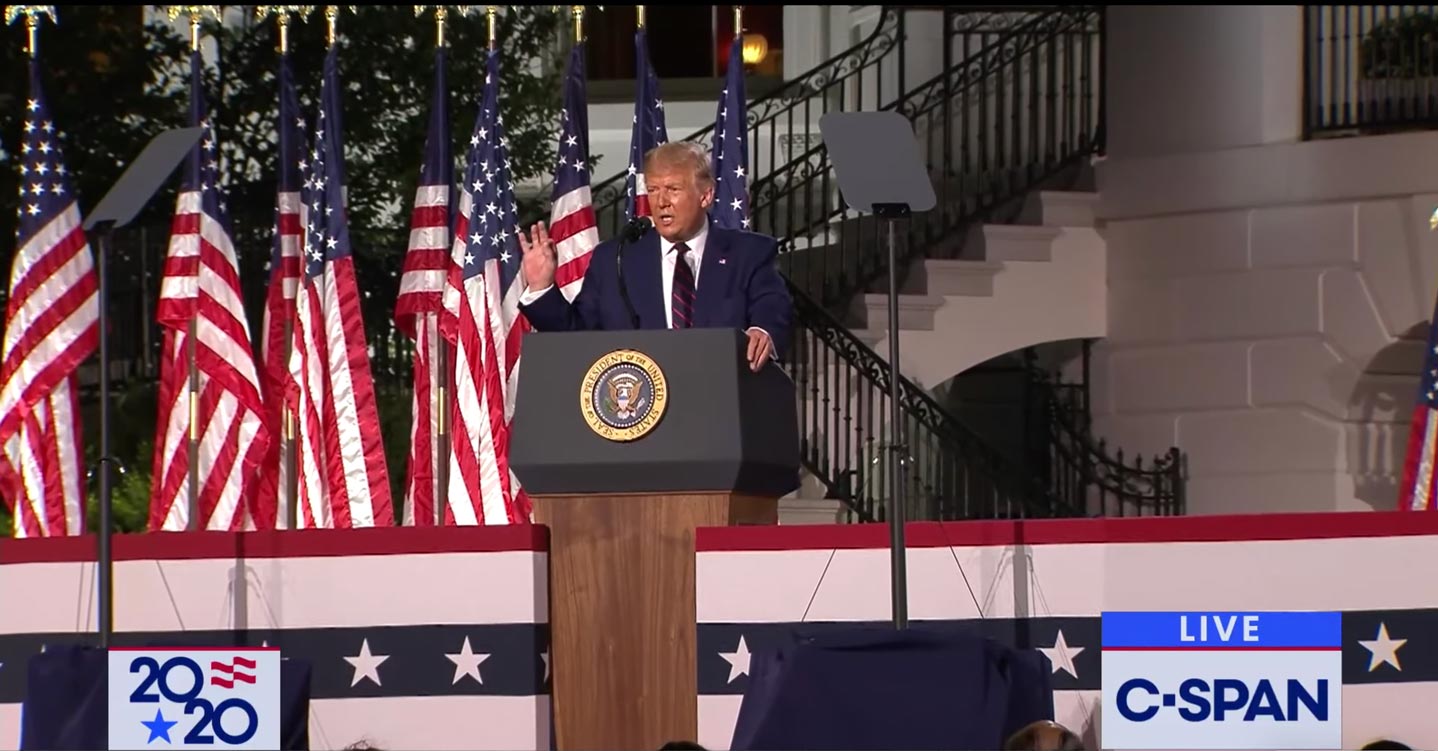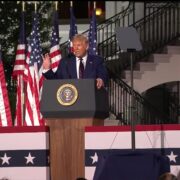
AMID the scaled-down Republican National Convention, a group of supporters from across the country, dubbed “Filipino Americans for Trump,” met virtually to discuss why they’re continuing to support the president and what their priorities are to get out the vote until November 3.
“This is no ordinary election. This is a decision that we have to make for the future of our country [and] the next generation and so it is important that votes are counted and your voices are heard,” Herman Martir, a pastor from Fort Worth, Texas, told over two dozen attendees during a Zoom meeting on Wednesday, August 26.
Wearing a “Make America Great Again” hat, Martir — a member of both President Donald Trump’s advisory commission on Asian Americans and Pacific Islanders (AAPIs) and his re-election campaign’s AAPI council — shared how he and his wife set up a Facebook page for their affinity group last year and it now has over 32,000 followers, as of this writing. He urged participants to continue to post in the group but also to call family and friends to head to the polls on Election Day.
“There are over 4.5 million Filipino Americans living in the United States and half of that are not even registered to vote so we want to make sure everyone is registered and participates in the coming election,” he added.
The group chanted “Four more years” and took turns talking about the specific issues they care about, from school choice to the economy.
Ron Falconi, mayor of Brunswick, Ohio, said the turnout of their virtual gatherings, which have been occurring weekly, contradicts the notion that Fil-Ams are largely Democratic and progressive.
“There are many Filipinos who are conservative and believe in this president,” Falconi told the Asian Journal. “They are devoutly religious, believe in low taxes, and are concerned about the news they see on the streets, whether it’s Portland, Chicago or now Kenosha, [Wisconsin]. But the mainstream narrative doesn’t highlight these views.”
The elected official, who is also a member of the advisory board for “Asian Pacific Americans for Trump,” said that the next 60-some days are crucial in their efforts to double down on the president’s message.
“We’re trying to get as many volunteers together as we’re doing various things, whether it’s phone banking, going door to door or trying to staff headquarters,” Falconi said. “It’s going towards reelecting the president, but at the same time, working to elect Republicans down the ballot.”
Over 11 million AAPIs will be eligible to vote in this cycle, comprising 5% of the country’s eligible voters, according to Pew Research Center.
Preliminary polling from the 2020 Asian American Voter Survey by APIA Vote, AAPI Data and Advancing Justice | AAJC showed that 54% of AAPIs were leaning toward Biden, while 29% support President Donald Trump. Of the polled voters, 16% of voters remain undecided.
Despite the ongoing coronavirus pandemic reaching seven months in the United States, Trump accepted the Republican Party’s nomination and made his case for reelection before an audience at the White House’s South Lawn on Thursday, August 27, the fourth and final night of the convention.
“My fellow Americans, tonight, with a heart full of gratitude and boundless optimism, I profoundly accept this nomination for president of the United States,” Trump said in his remarks, which clocked in at a little over an hour.
The convention’s culminating speech, which reportedly drew 1,500 attendees in person without the new normal practice of social distancing and mandatory masks, came in the context of another recession and as over 178,000 Americans have been killed by the COVID-19 pandemic and 5.7 million more infected.
The United States, accounts for approximately one-fifth of the world’s 24 million infections, and is the leader of the most cases, followed by Brazil at 3.7 million and India at 3.3 million, according to Johns Hopkins University.
Notwithstanding the grim statistics and the side effects of the virus on unemployment numbers and business closures, throughout the week, loyalists — from Republican elected officials to small business owners — praised the president for the past three years and argued that he would continue to restore “law and order,” in reference to the summer of protests against racial injustice and police brutality.
“As long as I am president, we will defend the absolute right of every American citizen to live in security, dignity and peace,” Trump said.
The president also painted himself against what the country would look like under the leadership of his opponent, former Vice President Joe Biden, who accepted the Democratic Party’s nomination the week before.
“Instead of following the science, Joe Biden wants to inflict a painful shutdown on the entire country. His shutdown would inflict unthinkable and lasting harm on our nation’s children, families and citizens of all backgrounds…Joe Biden’s plan is not a solution to the virus, but rather it’s a surrender to the virus,” the president said, disregarding the Democratic nominee’s released plans to manage the virus, which includes a mandatory mask mandate.
But one of the daring moments and takeaways from the president’s remarks was that the administration is “delivering life-saving therapies” and the promise of a coronavirus vaccine by the end of the year.
“We are delivering lifesaving therapies, and will produce a vaccine before the end of the year, or maybe even sooner!” Trump said. “We will defeat the virus, end the pandemic, and emerge stronger than ever before.”
In July, Dr. Anthony Fauci, the country’s top infectious diseases expert, said that he is “cautiously optimistic that we’ll have a vaccine by end of this year and as we go into 2021.”
In response to Thursday night’s speech, Biden tweeted, “From the moment COVID-19 emerged, President Trump downplayed the threat it posed, refused to listen to the experts, and failed to take action to contain its spread. Now, we’re paying the price.”






